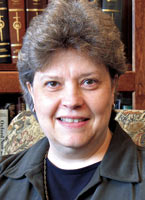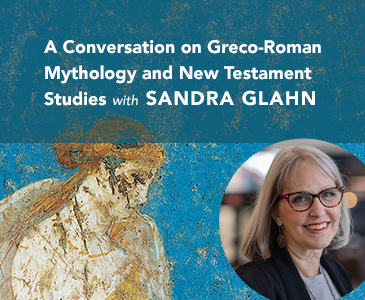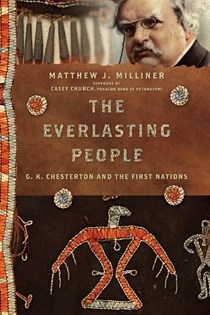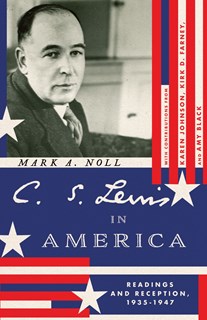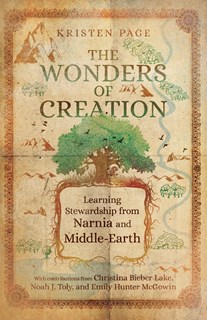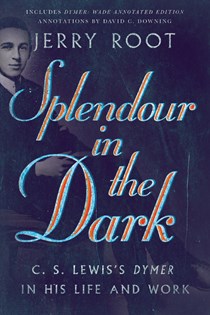Search Results
Showing 11 - 20 of 20 results
-
-
-
In her book "Nobody's Mother," New Testament scholar Sandra Glahn digs deep into evidence about the ancient Greek goddess Artemis of the Ephesians from both biblical and classical sources in order to bring into focus Paul's teaching in 1 Timothy. Read this interview to learn more about her thoughts on scholarship, mentoring, and the role of story in academic writing.
-
Literature has transformed culture throughout all of history. These resources engage with important literature through a Christian lens, applying biblical thinking to great works of literature and poetry as well as the lives of noteworthy Christian authors like C. S. Lewis, J. R. R. Tolkien, Dorothy Sayers, and more. Whether you're looking for literary criticism or wisdom on the craft of writing, these books are a great place to start.
-
The Everlasting People
G. K. Chesterton and the First Nations
Hansen Lectureship Series
by Matthew J. Milliner
Contributions by David Iglesias, David Hooker, and Amy Peeler
Foreword by Casey ChurchFirst Things Book of the Year award
What does the cross of Christ have to do with the thunderbird? How might the life and work of Christian writer G. K. Chesterton shed light on our understanding of North American Indigenous art and history?
This unexpected connection forms the basis of these discerning reflections by art historian Matthew Milliner. ...
-
C. S. Lewis in America
Readings and Reception, 1935–1947
Hansen Lectureship Series
by Mark A. Noll
Contributions by Karen J. Johnson, Kirk D. Farney, and Amy E. BlackPerhaps no other literary figure has transformed the American religious landscape in recent history as much as C. S. Lewis. Even before the international publication and incredible success of his fictional works such as The Chronicles of Narnia or apologetic works like Mere Christianity, Lewis was already being read "across the pond" in America. But who exactly ...
-
The Wonders of Creation
Learning Stewardship from Narnia and Middle-Earth
Hansen Lectureship Series
by Kristen Page
Contributions by Christina Bieber Lake, Noah J. Toly, and Emily Hunter McGowinWhen an author of fiction employs the imagination and sets characters in a new location, they are in a sense creating a world. Might such fictional worlds give us a deeper appreciation for our own?
Many readers have found themselves, like the Pevensie children, transported by C. S. Lewis into Narnia, and they have traveled from Lantern Waste to Cair Paravel and the edge of ...
-
Splendour in the Dark
C. S. Lewis's Dymer in His Life and Work
Hansen Lectureship Series
by Jerry Root
Notes by David C. DowningSeveral years before he converted to Christianity, C. S. Lewis published a narrative poem, Dymer, under the pseudonym Clive Hamilton. Later, of course, Lewis became well known for his beloved imaginative stories, such as The Chronicles of Narnia and Till We Have Faces, as well as his ability to defend and articulate the faith in works such as Mere ...
-
The Last Romantic
C. S. Lewis, English Literature, and Modern Theology
Hansen Lectureship Series
by Jeffrey W. Barbeau
Three Essays on C. S. Lewis and Romanticism
Many readers have heard C. S. Lewis's logical arguments for the Christian faith. Yet throughout his wide-ranging study and writing, Lewis often began with experience, intuition, and religious feeling rather than dogmatic assertions. The most profound questions of Lewis's own life, argues theologian and literary critic Jeffrey Barbeau, ...
-
 paperback
paperbackPassing the Torch
An Apology for Classical Christian Education
by Louis Markos
What is the purpose and meaning of classical education?
Imagine a world where education isn't just about information transfer but about shaping the soul, where students are nurtured to become virtuous, morally self-regulating citizens. Passing the Torch makes an energetic case for the critical role of classical Christian education in today's world. From the pre-Christian ...


